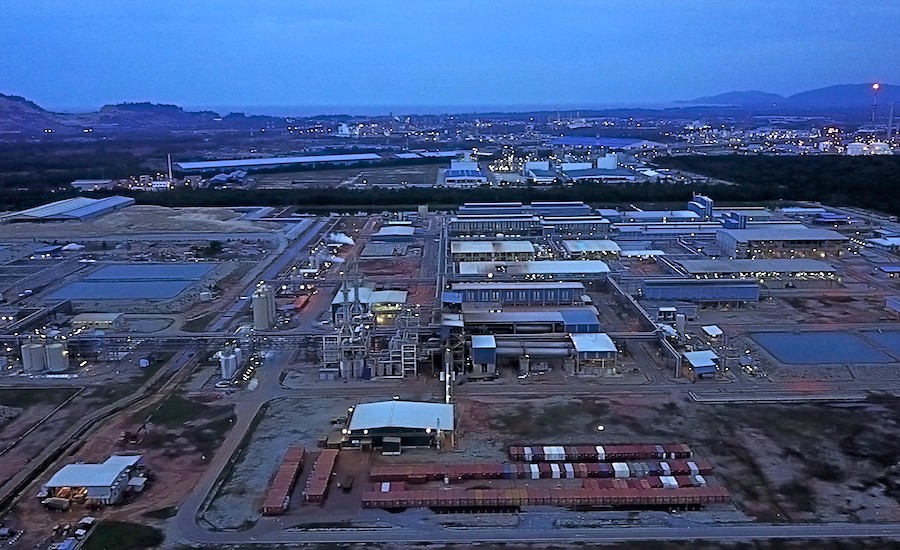It’s not often that Malaysia can compete with China on the same level, but in the rare earths industry, our country has the opportunity of taking a place in the global big league.
In fact, Malaysia is a member of a unique club: It is one of the dozen or so countries, including China, that has reserves of rare earth elements.
These 17 elements are essential for the manufacture of consumer goods and high-tech gadgetry, being used in everything from missiles to smartphones.
China produces 97 per cent of global output, but after it restricted its exports, other countries, particularly in the West, are looking at alternative sources of the metals.
With 30,000 tonnes of reserves, Malaysia is a small player, but can use its reserves to great effect. As demand for green technology grows, the use of rare earths will increase even further, as these are essential for environmentally-friendly products such as wind turbines and electric cars.
The Lynas rare earths refinery in Gebeng would allow Malaysia to develop its own expertise in processing rare earths, a technology that few countries possess.
Once completed, this plant would be the world’s biggest refinery for rare earths, and the first to be set up outside China in nearly three decades.
Given this international situation, the Lynas plant threatens China’s de facto monopoly and would allow Malaysia to become an alternative global hub for rare earths production.
In fact, the signing of the RM700-million project in 2008 was a remarkable forward-thinking action taken by the Government, keeping the future position of Malaysia in mind.
Yet, just when our country is on the verge of capitalising on its envious position in global economics, Opposition groups have stalled the project by carrying out a misinformation campaign, claiming the almost complete plant was somehow a hazardous ‘nuclear facility.’
Despite being declared safe by the UN’s respected International Atomic Energy Agency (IAEA), protestors are still obstructing the construction of this landmark plant to score political brownie points.
But in doing so, they are jeopardising Malaysia’s national interest.
The fact that PAS even issued a gag order on one of its members, nuclear expert Dr Che Rosli Che Mat, shows that the party was ready to go to any length to subvert this strategically important facility, just to make the government look bad.
Che Rosli nevertheless defied his own political party and recently confirmed that the Lynas plant was very much safe. He said the Malaysian public had been tricked by false accusations intended to frighten them.
Che Rosli pointed out that the plant processes material that is less radioactive than what is produced by traditional iron ore extraction and as such, it is totally safe. The waste material produced is of such low level radiation that it can be legally transported back to Australia without the need for safeguards.
He claimed that PAS had tried to keep him quiet on the issue, but his conscience as a scientist made him ignore this gag order and speak out. This unsavoury episode confirmed that the protests against the plant are largely politically driven and orchestrated by a cynical Opposition looking for short-term political gain.
After all, the area around the Kuantan plant was safer than downtown KL, according to a leading international authority in strategic rare metals.
Jack Lifton, the founding principal of Technology Metals Research, said safety in rare earth plants had improved tremendously in the past decades. He was speaking at an International Symposium on Rare Earths held in KL this week.
In the past, Malaysia used to export its tin to be processed overseas, thus losing much of its revenue to others. Now, having its own technology, Malaysia is able to process its natural resources within the country.
Datuk Dr. Lee Yee Cheong, chief spokesman the Academy of Sciences Malaysia (ASM), recently said that focusing on high value-added industries, particularly when global demand for such products was on the rise, would help Malaysia achieve high income status by 2020.
“Countries that do not invest in green energy and technology will live to regret the day when others are seen extracting the dividends of their investments,” he noted.
We therefore have a rare opportunity to prepare for the future. By providing the entire value chain in the rare earths industry – from mining to processing rare earths – Malaysia could soon occupy an enviable niche in the world.

